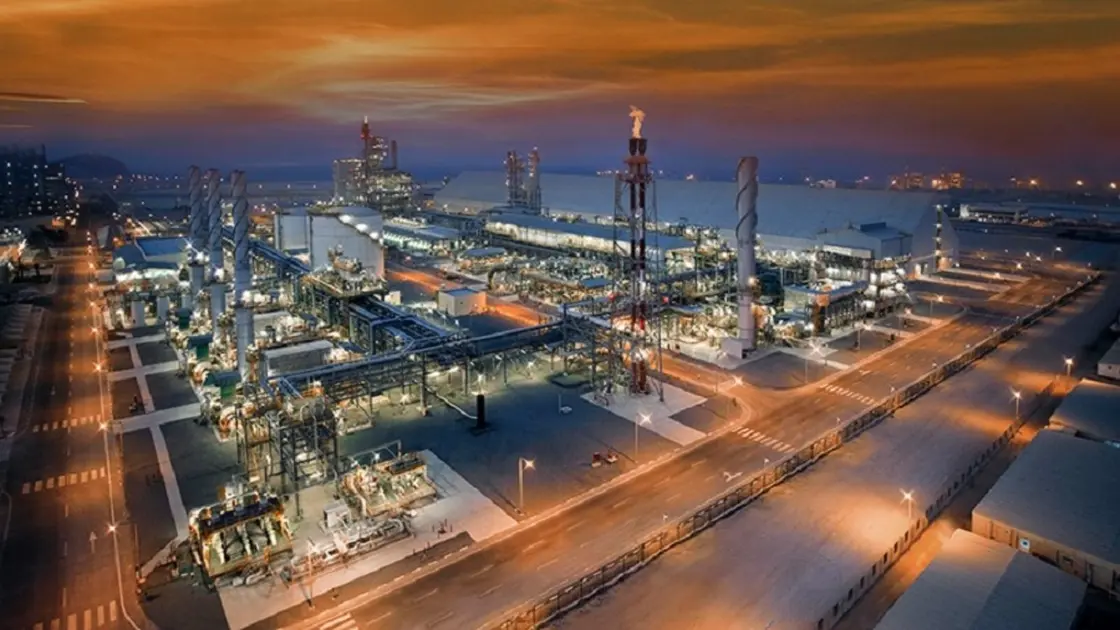The Abu Dhabi Industrial Strategy (ADIS) launched in June 2022 has accelerated the transformation of the emirate’s manufacturing sector, strengthening its position as the region’s most competitive industrial hub within its first year, according to a release on Tuesday by the Abu Dhabi Media Office (ADMO).
Increased activity has been registered across all three stages of Abu Dhabi’s manufacturer licensing journey: Rowad (initial license to establish an industrial company), construction (to begin constructing an industrial facility), and production (to commence operations).
The 12-month period from July 2022 to June 2023 recorded a 16.6 per cent increase in the number of new industrial Rowad licenses granted in Abu Dhabi, from 204 to 238, with 116 new Rowad industrial licenses issued during H1 2023 alone, an increase of 63.3 per cent from the number issued in H1 2022.
Capital investments to the tune of Dh 15.36 billion made by manufacturing facilities moved to the in-production phase over the year, a growth of 85.7 per cent from a year earlier. As a result, total capital investments by manufacturers operating in the emirate grew Dh 12.42 billion to Dh 384.06 billion in the same period, up from Dh 371.64 billion a year ago.
The number of operational manufacturers in the emirate now stands at 966, up from 922 manufacturers at the end of the first half of 2022.
Ahmed Jasim Al Zaabi, Chairman of Abu Dhabi Department of Economic Development (ADDED), said: “Guided by our leadership’s foresight and unwavering commitment, ADDED is doubling down on its efforts to enhance Abu Dhabi’s competitiveness through a new multi-polar economic strategy, where the industrial strategy sits at its core. As an ambitious blueprint to guide the emirate’s manufacturing sector, the Abu Dhabi Industrial Strategy has ushered in a new era in the economic landscape that leverages innovation and advanced technologies to harmonise human development, sustainability, and growth.”
Al Zaabi added: “The robust performance of the manufacturing sector is testament to Abu Dhabi’s ongoing economic resilience. Our manufacturing sector, which contributed 16.4 per cent to Abu Dhabi’s non-oil GDP in 2022 and represents 49.9 per cent of the total industrial sector in the UAE, is moving from strength to strength, powered by successful implementation of the industrial strategy’s transformational programs to enhance the sector’s competitiveness by increasing access to financing, enhancing ease of doing business, and attracting domestic and foreign direct investments.”
Industrial strategy
Led by ADDED, Abu Dhabi Industrial Strategy (ADIS) aims to strengthen the emirate’s position as the region’s premier industrial hub by doubling the size of industrial sector to Dh172 billion, creating 13,600 new skilled jobs, and increasing the emirate’s non-oil exports to Dh178.8 billion by 2031.
The strategy involves an investment of Dh 10 billion across six transformational programs: Talent Development, Industry 4.0, Circular Economy, Ecosystem Enablement, Homegrown Supply Chain, and Value Chain Development.
Over the past year, the Industrial Development Bureau (IDB), ADDED’s industrial sector development arm, has launched several initiatives to deliver on the goals of the strategy, including the Industrial Talent Program, which is helping attract, develop, and upskill human capital in the industrial sector to meet the increased demand for knowledge-based jobs.
IDB also launched ‘Tech Champions,’ a pilot program to equip employees of food manufacturing factories in Abu Dhabi with Industry 4.0 skills, which graduated its first cohort in May 2023.
During the year, IDB also unveiled a smart manufacturing competence center to support sector-wide Industry 4.0 transition, an incentive programme to support existing industrial SMEs adopt smart manufacturing methods and processes, and a value chain development program to further enhance the industrial investment ecosystem.
Additionally, ADDED signed agreements with a number of leading global companies to enhance industry innovation and digital transformation, and nurture emerging talent by training UAE Nationals through in-country, global and virtual programs on technology, business, and behavioral skills.
Source: AL Arabiya



